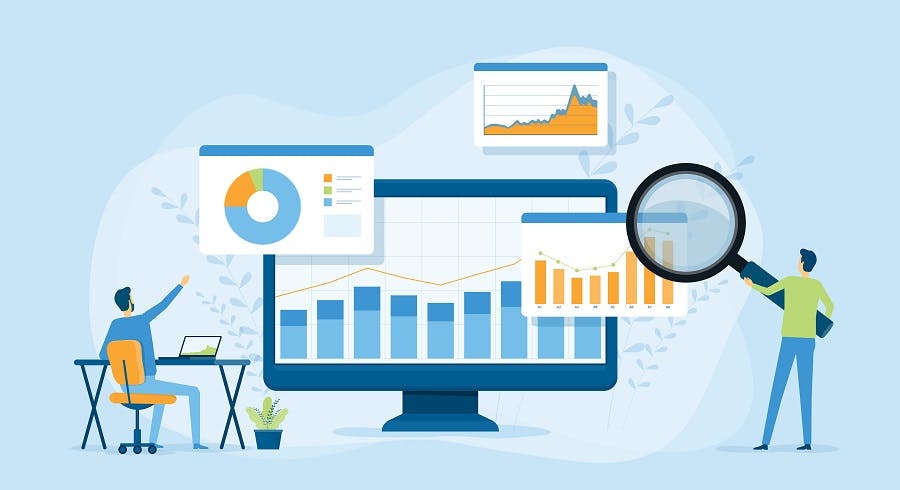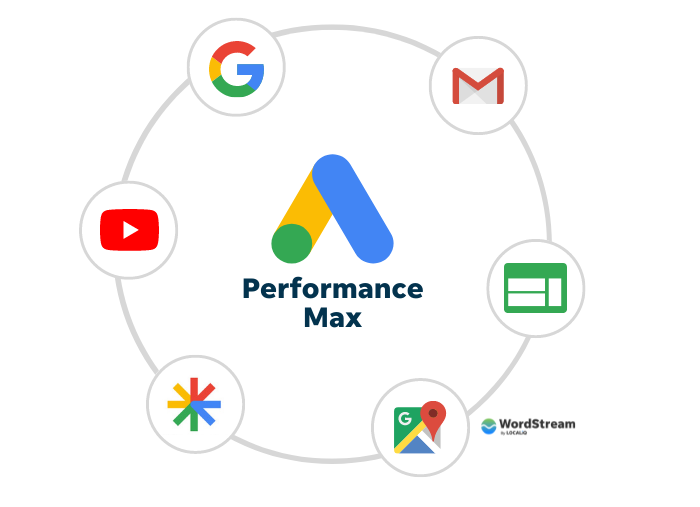
“On a personal level, with the teams that I lead and manage – if everyone had these three technical skills in abundance, then everything would accelerate significantly faster for the clients that we work with.”
“So, for me the biggest focus in terms of the skills demand is marrying up that approach between analytics – getting an understanding of the data – and serving the customer with the right content at the right time to the right audience.”
While the temptation might be to continually hire for new team members who specialise in the skills that your organisation lacks, recruitment can be a costly strategy in economically tough times, with the most sought-after skills also the most challenging to hire for.
In an ever more competitive business environment, how can marketers ensure that their teams are not only equipped with the skills they need for their roles, but also “future-proofed” – able to keep up with the rapid evolution of marketing itself?
“It’s a huge change in attitude towards learning, making it much easier to have a learning culture – a good learning culture. People are looking more towards the future than they have in a very long time.”
Modern-day marketer as commercial data scientist
Robinson asked Haier Europe’s Antony Peart what skills he sees as most in-demand – not just by marketing teams, but in terms of the capabilities that customers have come to expect from major brands.
SAP’s Kirsten Boileau added that she’s encouraged by the enthusiasm and hunger to learn shown by early talents entering the field. “They have that learning culture of wanting to continually learn, [and] learn through whatever experience it is that they are having.
Speaking to the barriers that might stand in the way of marketers acquiring the data and analytics skills they need to keep up with the pace of change, Kirsten Boileau said that many marketers may find data “scary”. “It’s a lot at first – it’s a lot of graphs – and if you don’t understand, it can be extremely overwhelming.”
She suggested that organisations can counter this by removing a lot of the “ins and outs” of data and instead focusing on the stories it can tell. “Show what the data can deliver – show what kind of story it can tell you. And then help them dive into – ‘If I want to get to that story, if I want to understand that story, what are the steps I need to take?’ And then break it down for them, and make it into very bite-sized chunks.”
As a result, Boileau said, some of that optimism is “rubbing off” on those who might otherwise have been less proactive about learning: “I’m seeing more and more people want to put it into their calendar on a weekly basis … and not only set aside that time to consume it, but to talk with others about it, look for ways to apply it, so that it isn’t just brushed under the rug as soon as they go back to their desk – figuratively speaking – but actually becomes part of how they evolve their way of working.”
Haier Europe has found itself tackling a similar problem, and Antony Peart said that an effective starting point was communicating to marketers how data and analytics can enhance their roles. “We’re not expecting everybody within marketing to be a data-driven gold miner – but if everybody can come on the journey a little bit more and as you say, create the stories – that is really key. We’re starting to get a great knowledge base across all areas to really start pulling out that data to showcase what that can mean – whether it’s targeting customers, whether it’s new product introductions, or innovations, et cetera. So, starting to make data meaningful.”
“And they are not only sharing that kind of attitude with their peers and colleagues and their managers and their leadership; but they are really modelling that for those who have been in the job market for a long time, or in their particular role for a long time, who are perhaps a little bit more comfortable, and not feeling as if learning is as much of a priority.”
The mindset and attitude that marketers bring to learning can in many ways make or break the success of their upskilling, and Boileau noted that one of the positive changes that has resulted from the past two years is a more future-focused mindset from marketers. “Over the last couple of years I’m seeing a huge shift towards, ‘Okay – things can change in an instant. What do I need to know to be able to do my job in two years? In five years? Or: what are the skills I need as the foundation to be able to adapt to whatever shift comes in those two years, or those five years?’
Richard Robinson, Director at Econsultancy, spoke to four experienced digital marketing and ecommerce leaders at our second Quarterly Briefing of 2022 (register here to watch on demand), to find out how they tackle this problem: Jessica Myers, Director, Brands and Marketing at Metro Bank; Nikki Akers, Ecommerce Acceleration Director, UKI at L’Oréal; Antony Peart, Director of Brand and Communications at Haier Europe; and Kirsten Boileau, Learning Experience Partner for North America at SAP.
Adding to the point about the importance of mindset, Richard Robinson observed that a lot of the skills in marketing that are labelled “soft” skills and not thought of as particularly high-level or substantive are actually some of the most technical and important to being able to succeed in the industry. “What I would argue is that the ability to embrace change, the ability to critically think, and the ability to collaborate are all technical skills that can be trained – and they can be harder than some of the more basic knowledge that you might want to go in and train people on,” he said.
“Certainly content is the name of the game – in whatever form – I think that has the biggest impact in terms of aligning with the second [skill], which is analytics,” Peart replied. “Understanding the data analytics and understanding the framework of what that offers, to give that clearer picture of the ad performance aligned with the content.
“It’s okay not to know”: overcoming barriers to upskilling
She added that in order to overcome the discomfort felt by some employees, particularly senior employees, at learning new things, L’Oréal has tried to instil a mindset of “It’s okay not to know”. “We’ve tried to break down those barriers with our senior managers … and create environments – we call it a safe space – so they don’t feel like it’s exposing a weakness.”
She went on: “The ‘word du jour’ is going to be data, and data analytics … what I’m really excited about is how we will start to develop our modern-day marketer to be a commercial data scientist to their core. Of course, they’ll have a number of different strengths … but to speak the language of the boardroom, and to make sure we’re really getting to the crux of customer needs and what is going to help us grow our organisations: commercial mindset, growth mindset, and data analytics are going to be core to that.
For marketers who are unsure where to begin building a familiarity with data, she recommended starting by understanding the terms, acronyms and titles that go along with data, and then moving into using it to tell a story. “[Marketers] don’t need to share the microcosm of the data with their leadership – but they need to be able to tell the story. And then beyond that, the next level would be to understand all of the technology that goes in behind it, so that you can pull the right data for yourself and not be overwhelmed with pulling in everything – and end up with too much data.”
“We’re kind of going bottom up – we’re trying to upskill our people that are specialists in some of these areas, and then give the knowledge at a broader level to our senior managers so that they can manage those teams and continue to drive the growth that we’re seeing.”
Talk to Econsultancy to learn how we help marketing and ecommerce teams to benchmark and upskill their teams.
As an example of what kind of insights can be yielded from this understanding of data, Peart pointed to some of the unexpected demographic changes that have emerged in Haier’s industry – kitchen and home appliances – due to the Covid-19 pandemic. “The over-50, 65s are now more likely to buy something online than 16 to 24-year-olds,” he said. “It’s a really interesting dynamic in there – so specifically for our business, how do we target those customers through digital that may have not been in the digital arena before? It’s a really interesting time at the moment.”
“I’m really optimistic about the new talents we’re going to be upskilling our teams with, and what that will look like over the next 12 months.”
It’s all in the mindset
In January 2022, Marketing Week’s annual Career and Salary Survey found that data and analytics is the most commonly-identified skills gap in marketing departments – identified as a gap by 33.4% of respondents to the survey. As SAP’s Kirsten Boileau told Econsultancy in a recent interview, “Data is a huge concern. Marketers will need to have these skills eventually – we can’t rely on one centralised agency or person to make all the decisions for us. It’s just not scalable.”
“Change allows us to stay on our toes; a lot of [what can be said about marketing skills] is hugely optimistic in terms of the skillset and the mindset that modern-day marketers will have, and how they’ll start to grow and evolve and transition in their own roles.”
Nikki Akers, Ecommerce Acceleration Director UKI at L’Oréal, shared the story of L’Oréal’s ecommerce investment prior to the pandemic and explained how the company has been working to equip team members at all levels with the skills they need for online. “We’re definitely going through a process of, ‘What’s the upskilling that’s needed at the top of the organisation, when they’re managing teams who talk a language that at times is very different?’
Metro Bank’s Jessica Myers acknowledged how challenging the past few years had been for everyone – a trend that doesn’t show any signs of relenting – but emphasised that “with change comes opportunity”.

![[Infographic] The Changing Portrait of Mobile Consumers](https://research-institute.org/wp-content/uploads/2022/06/infographic-the-changing-portrait-of-mobile-consumers-768x3625.jpg)
![Google Announces Update To Broad Match and Phrase Match [Plus Tips on How To Reach the Right Customers on Search]](https://research-institute.org/wp-content/uploads/2021/04/what-to-know-before-you-sell-your-small-business-768x432.png)


